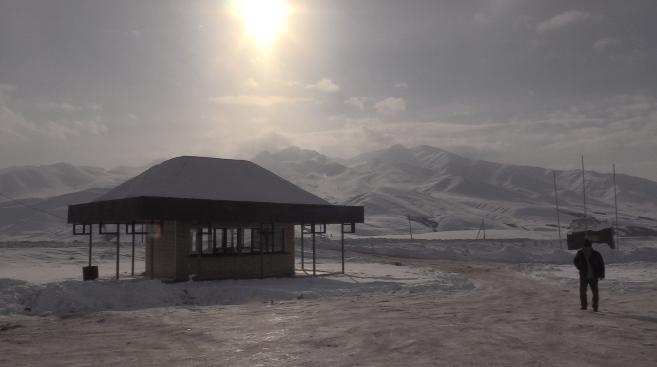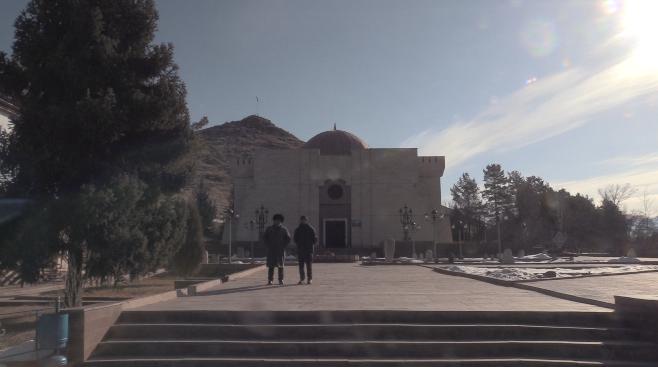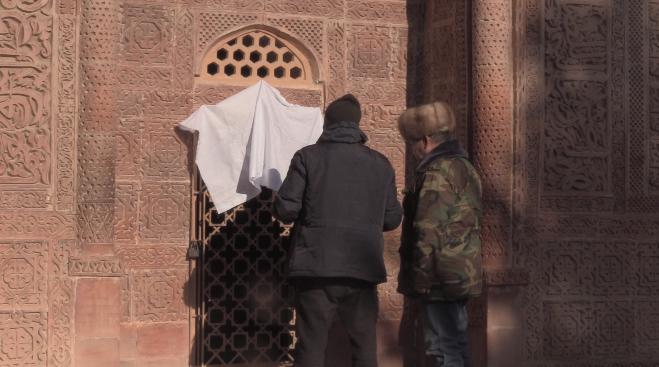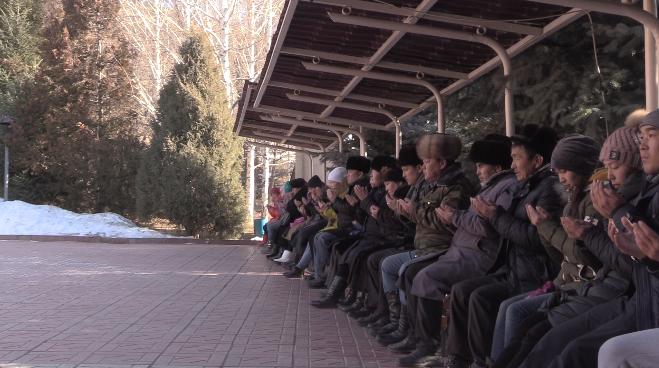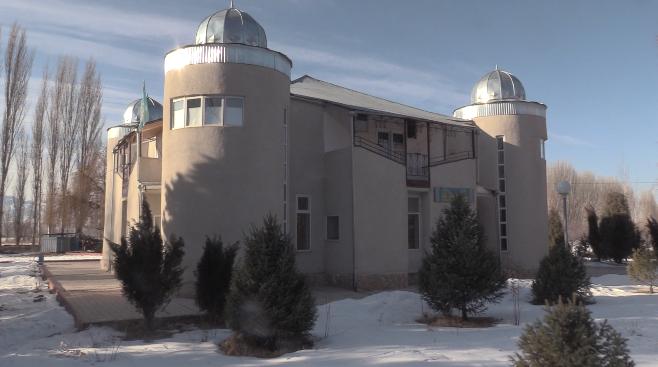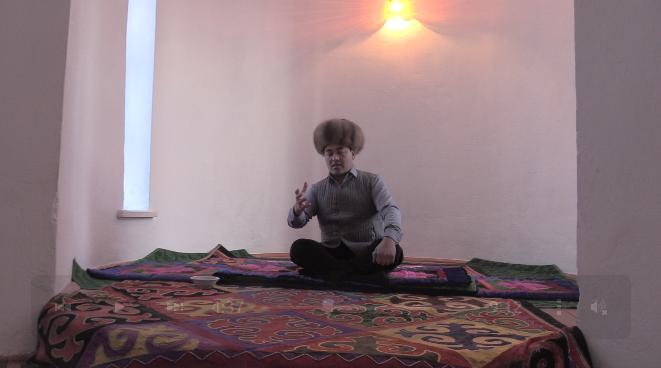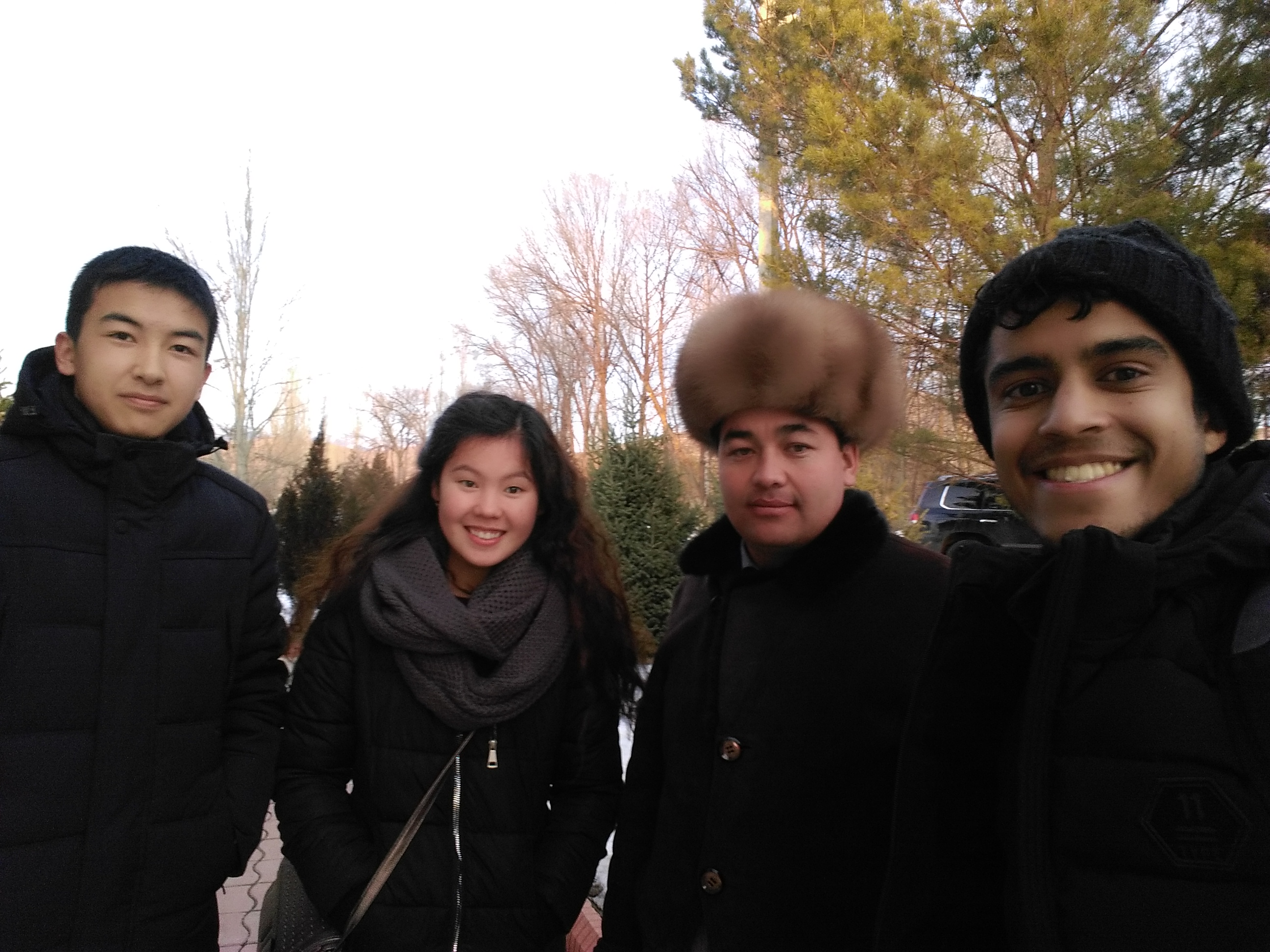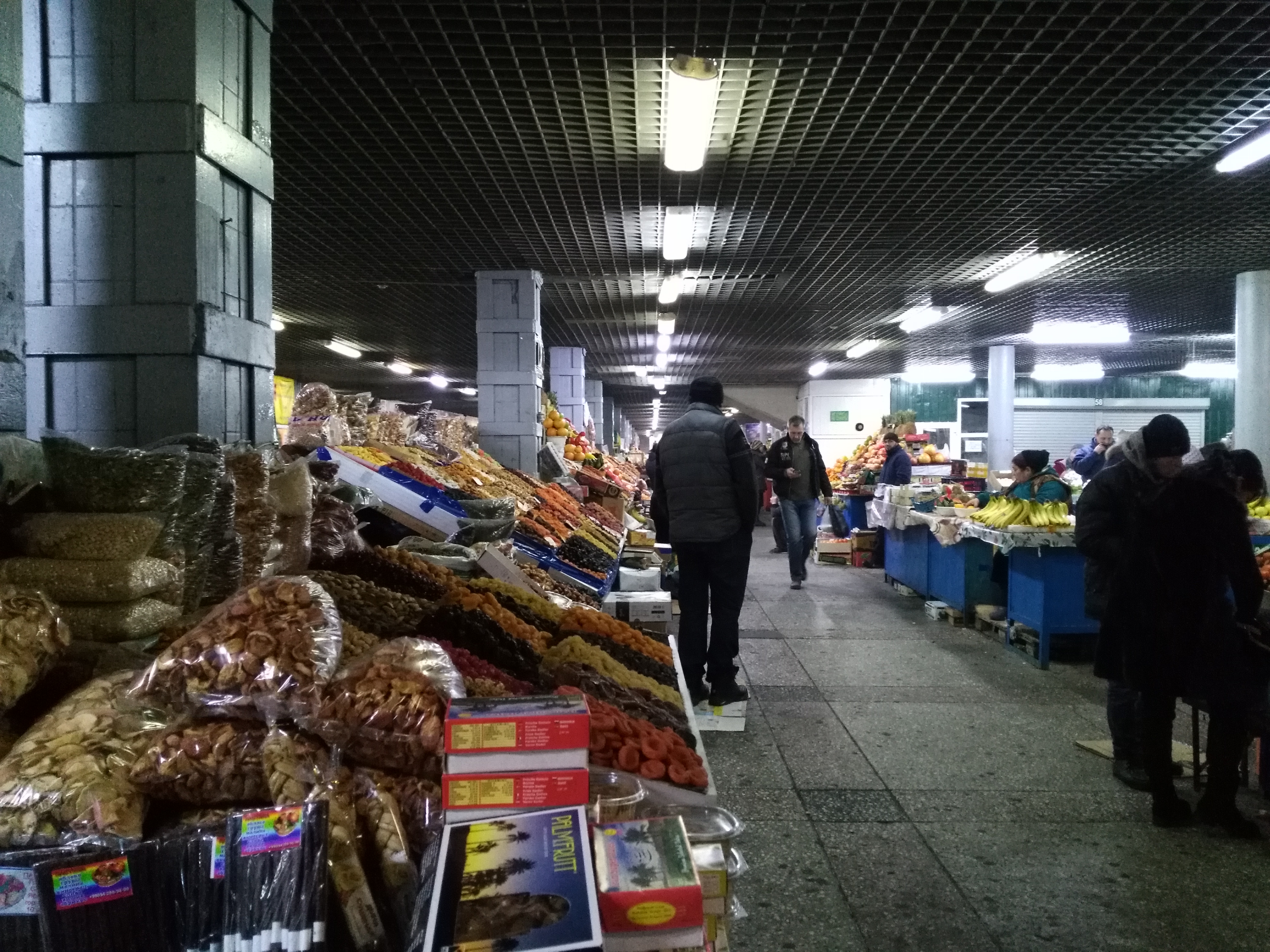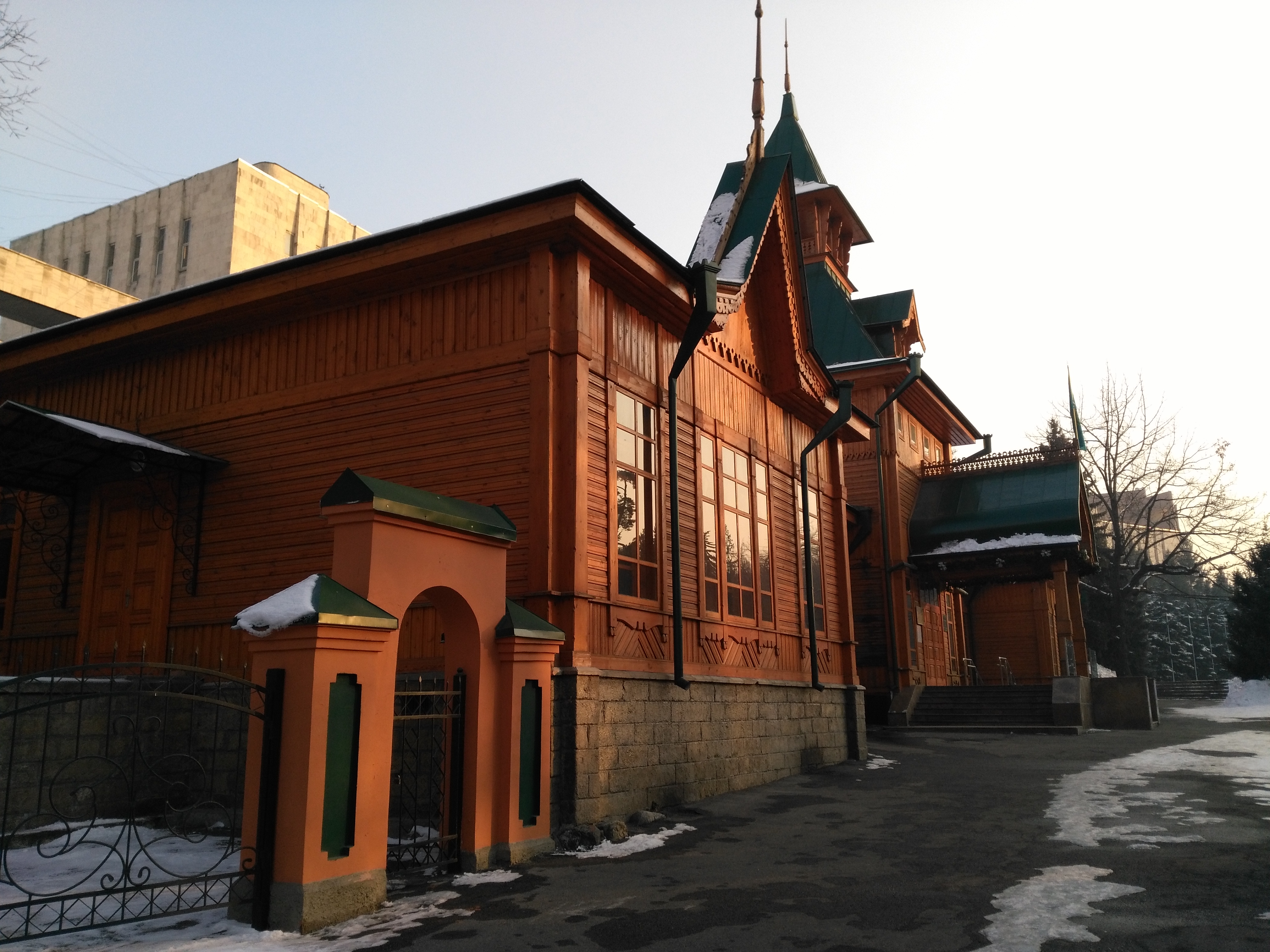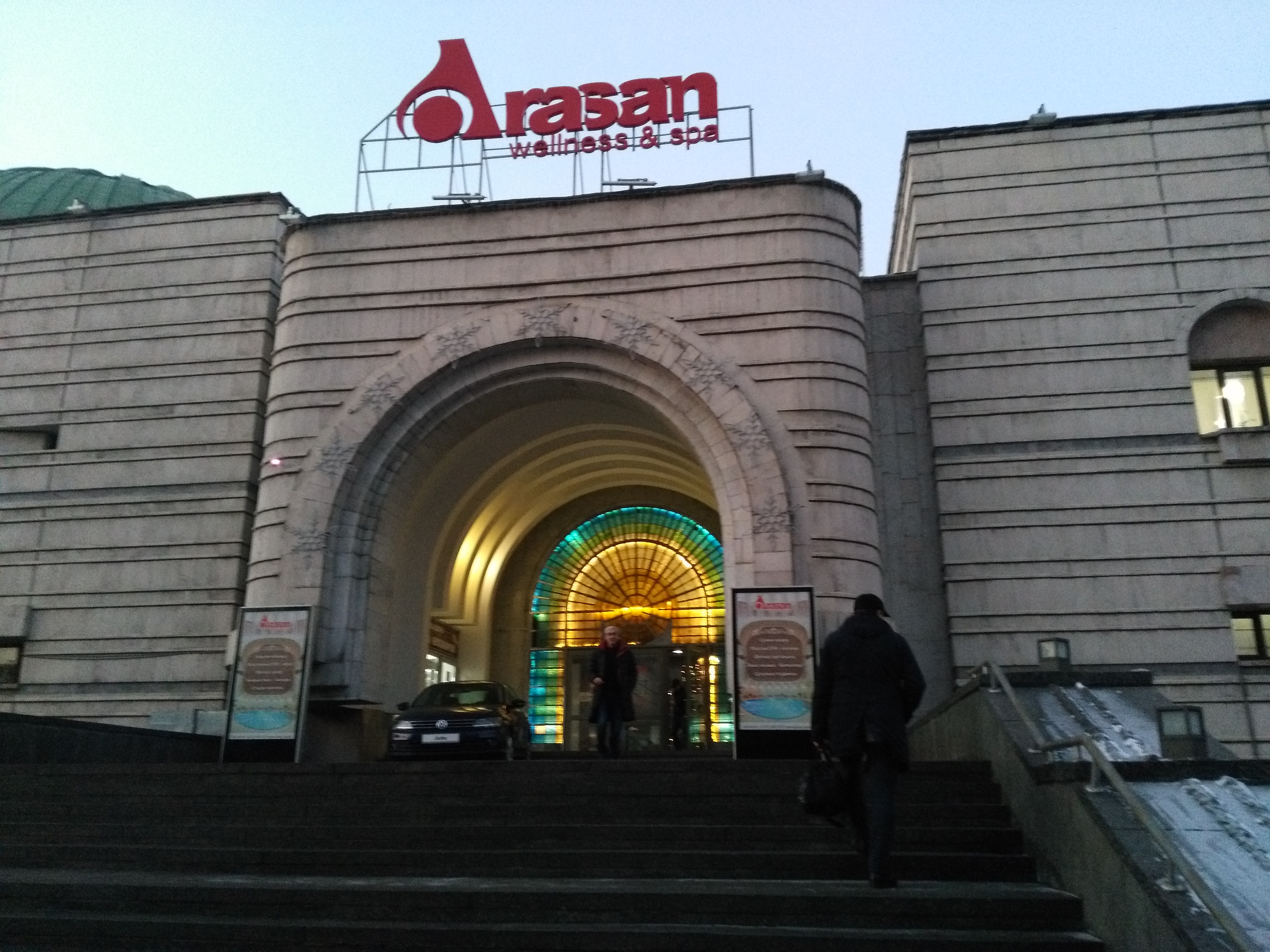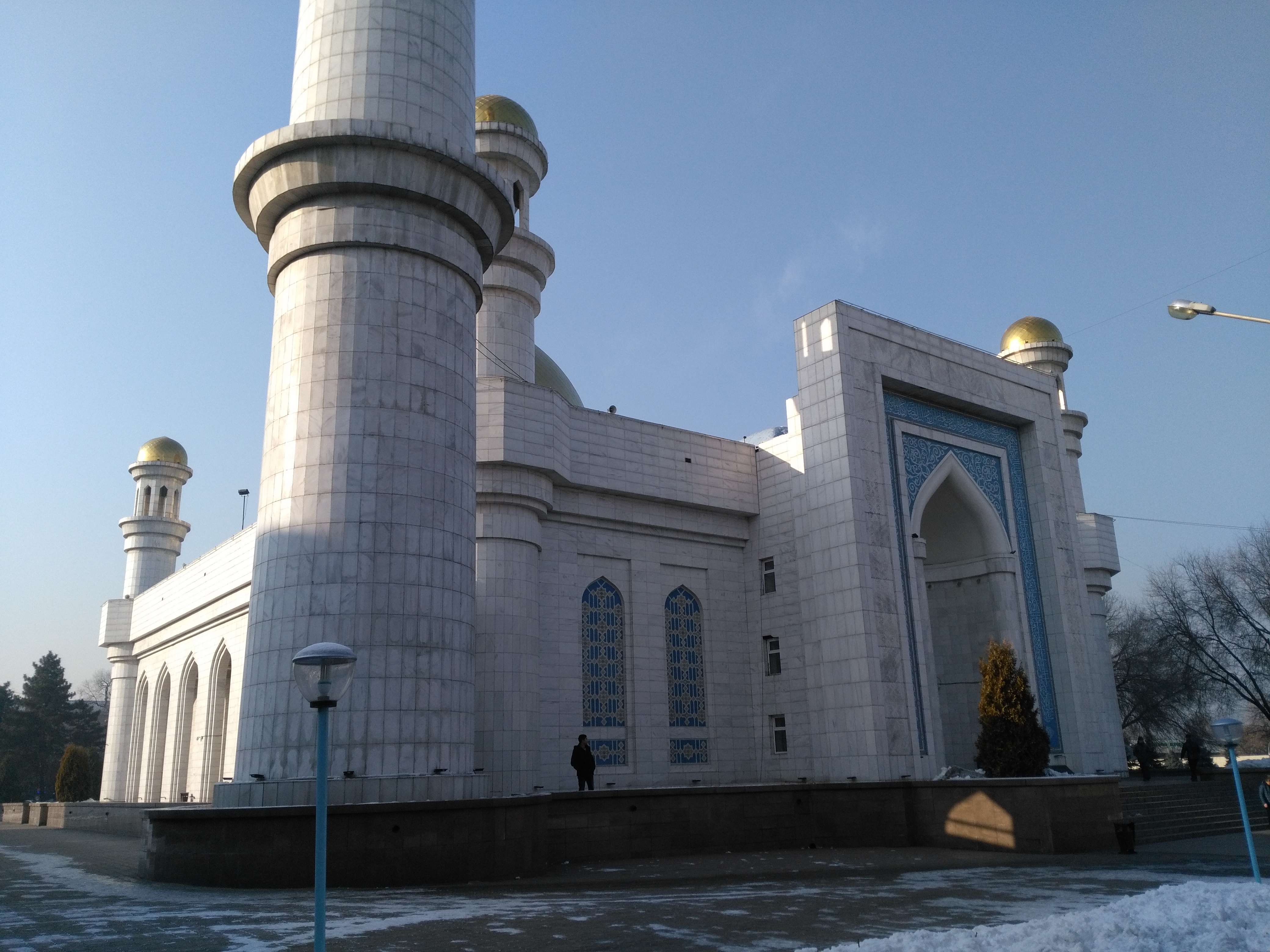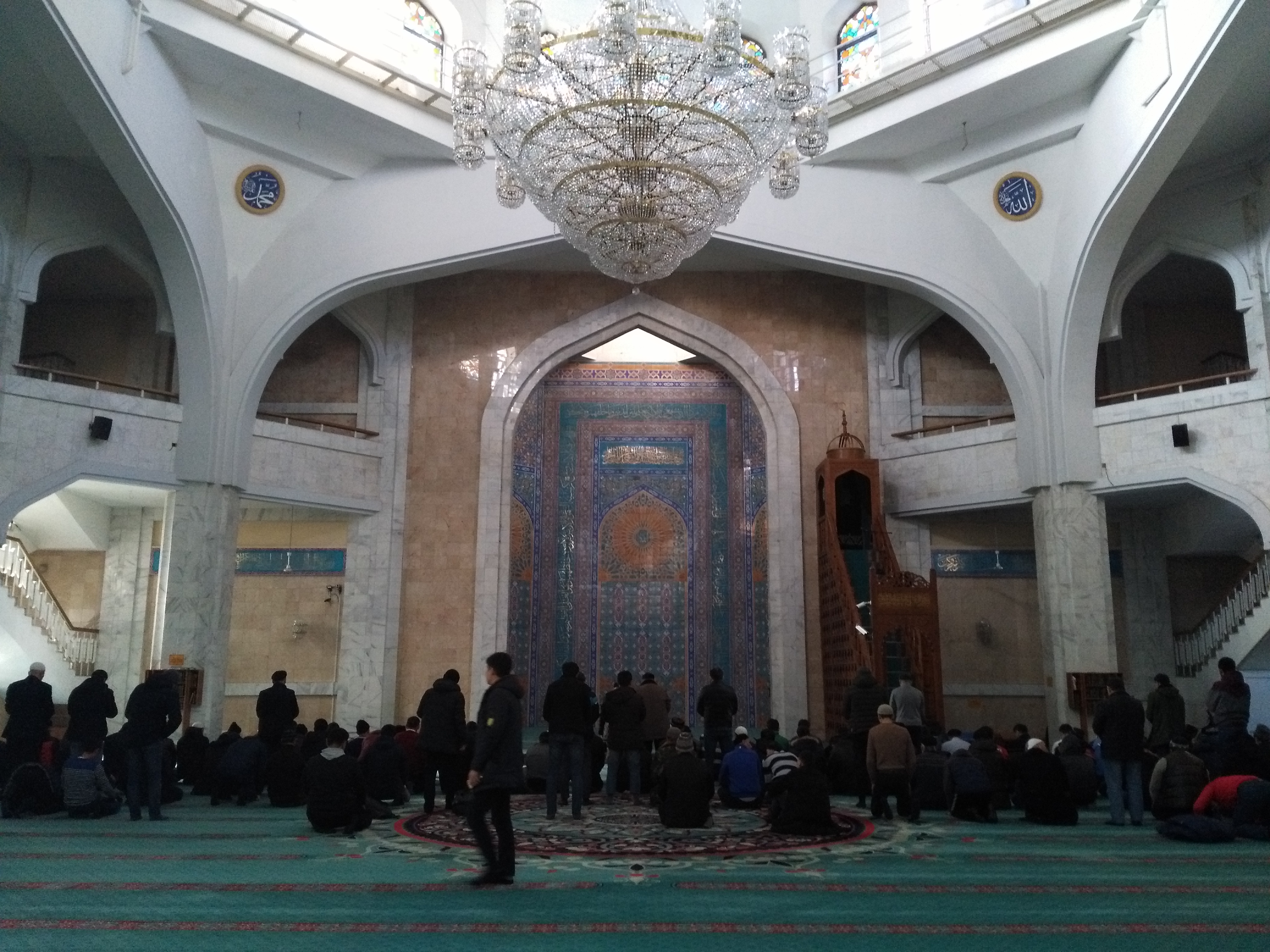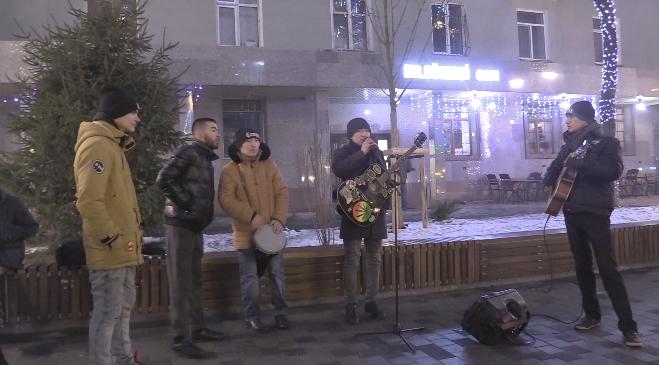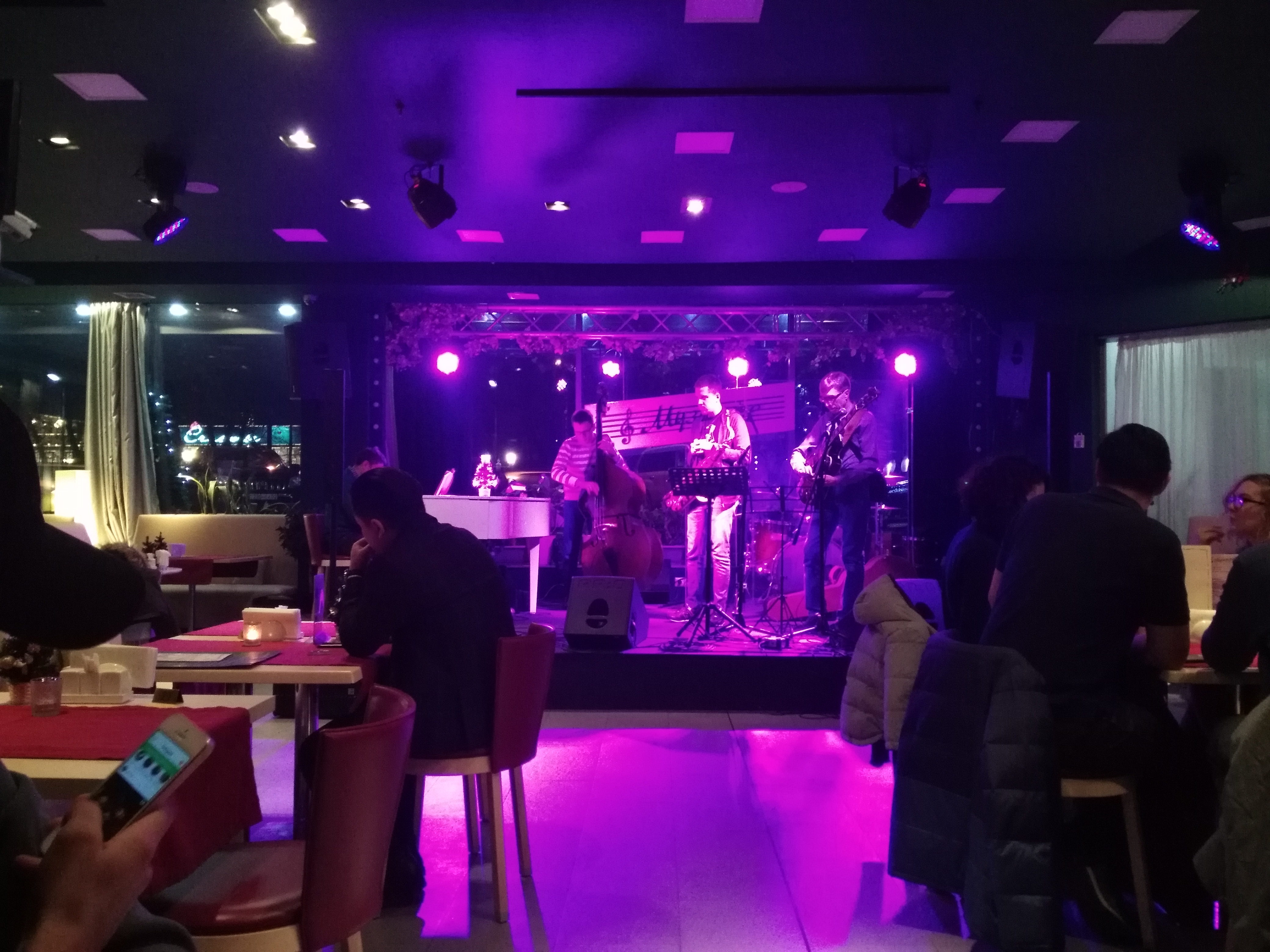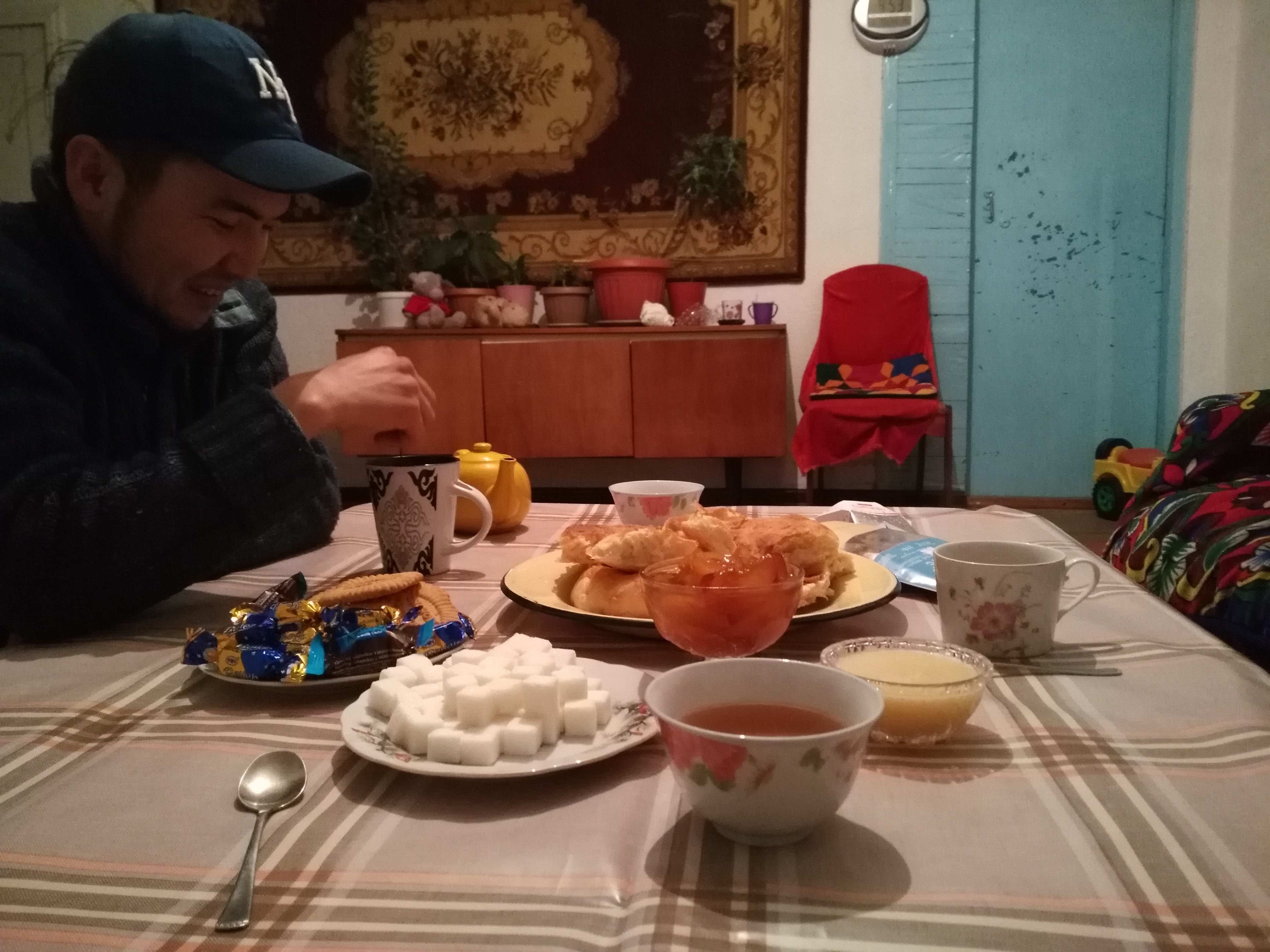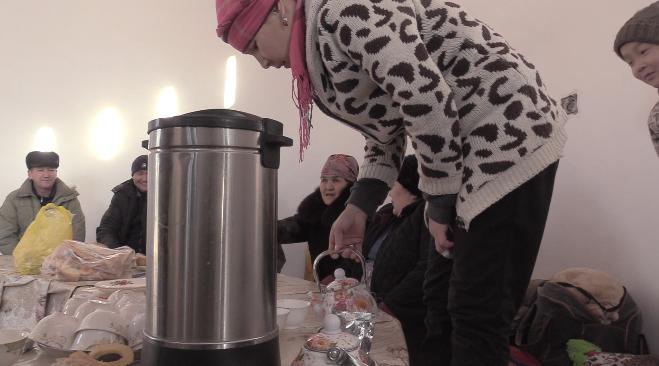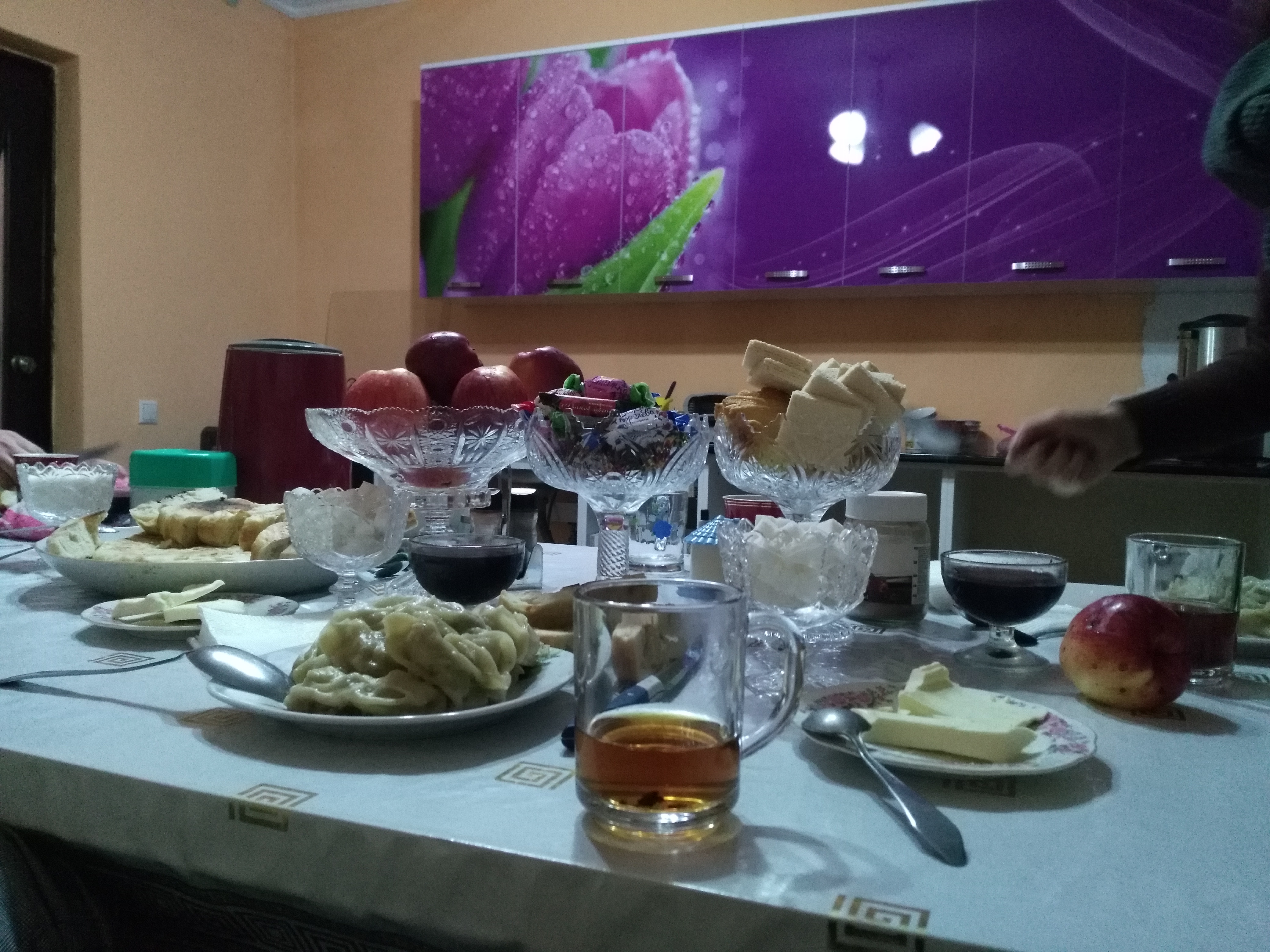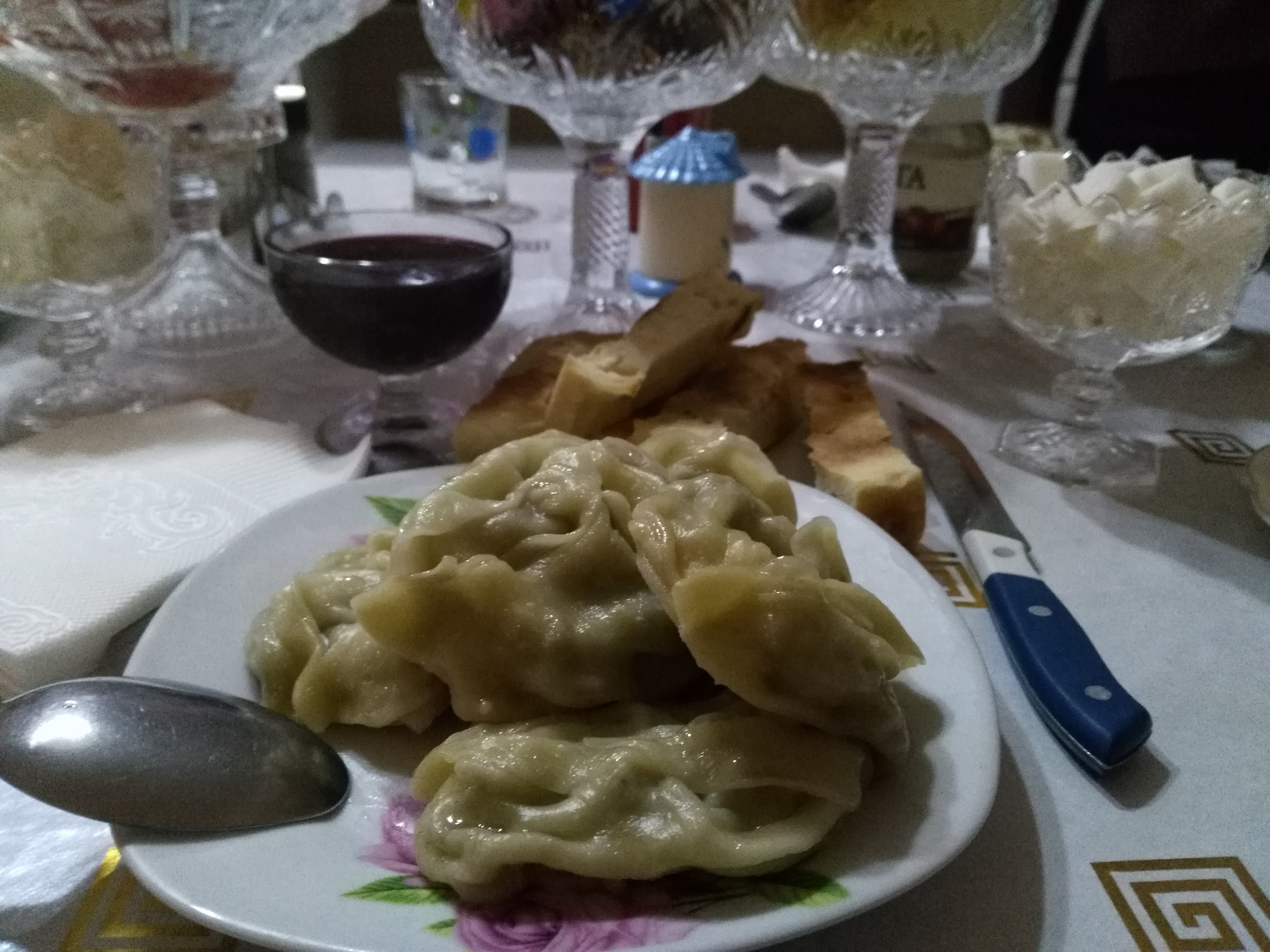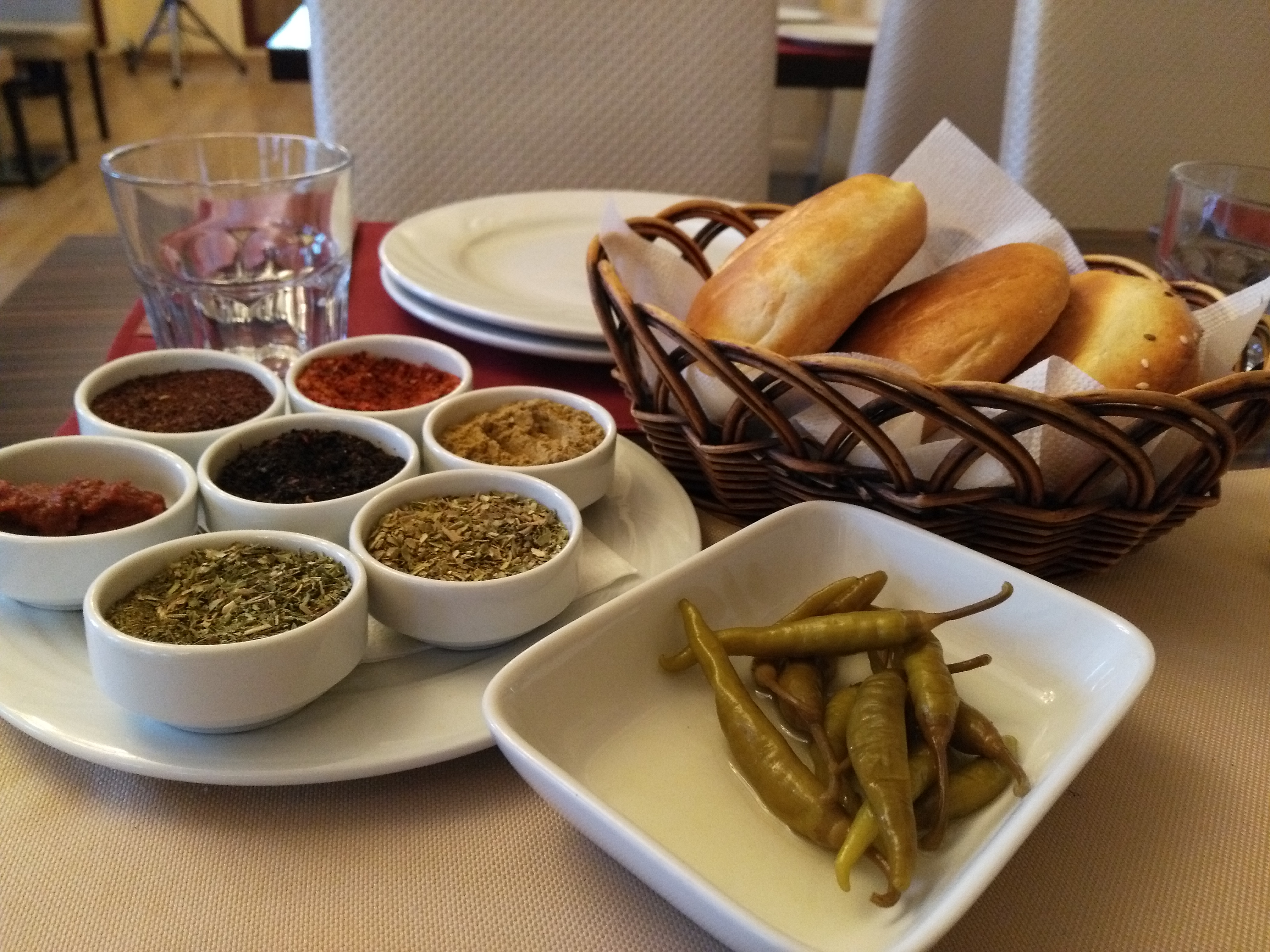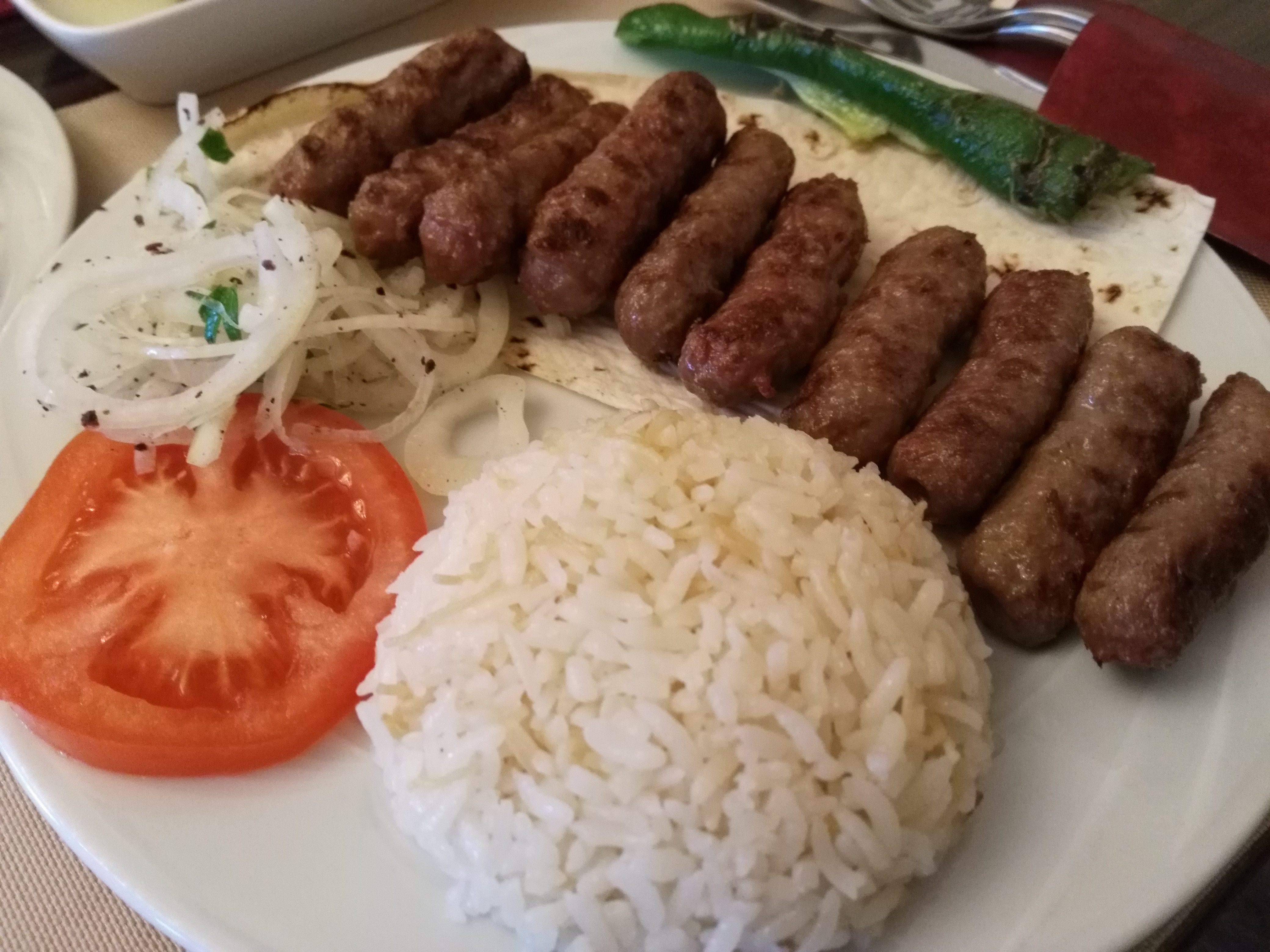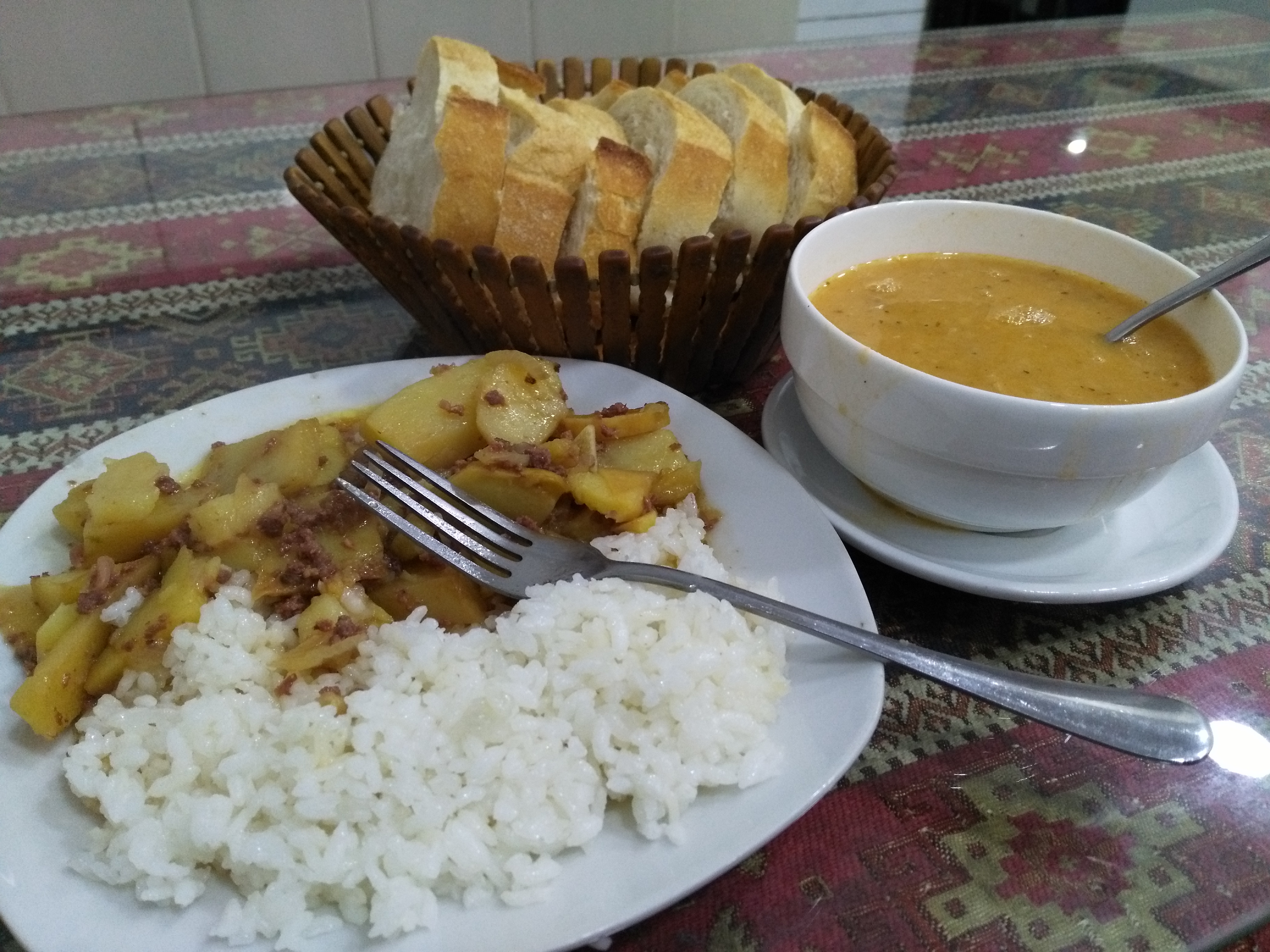Stints to Talas and Almaty
14 Jan 2018
Reading time ~13 minutes
After completing an interview with Doolotbek Sydykov, one of Kyrgyzstan’s most well-renowned manaschi (a reciter of the Manas Epic), I found myself in the Kyrgyzstan’s Northwestern town of Talas and as well as Almaty, Kazakhstan’s cultural capital. I must say that it was a real breath of fresh air to get out of Bishkek after being there for 3.5 weeks. Having gotten my toes wet in Kazakhstan, however, I promptly returned to Bishkek for a brutal slate of interviews. So much for getting away…
Doolotbek Sydykov (Дөөлөтбек Сыдыков)

“Your father is God and your mother is your spirit savior” - roughly the opening words of my interview with Mr. Sydykov. As with other people I’ve managed to get a hold of in Kyrgyzstan, getting a hold of him was no walk in the park, but my efforts paid off greatly. Mr. Sydykov inherited the art of Manas epic recitation from his paternal grandfather and began actively performing as a manaschi at age 12. Mr. Sydykov’s large extended family typifies kyrgyzchile, a hybridized form of Islam infused with native Kyrgyz orthodoxy and orthopraxy which is still fairly prevalent among Kyrgyz families today. The Islamic elements of kyrgyzchile generally include to Islamic marriages, funerals, holiday celebrations, friday prayers, and Quranic recitation for particular occasions. Most other aspects of kyrgyzchile stem from native Kyrgyz traditions and customs, which most puritanical Muslim types would likely demonize as being deviant or heretical beliefs or practices. As others I’ve interviewed have aptly noted, Mr. Sydykov mentioned that a more orthodox form of Islam has become increasingly trendy over the past 5-10 years in Kyrgyzstan. Mr. Sydykov himself delved into this more orthodox form of Islam for some time back in his hometown in the Issy-Kul region of Kyrgyzstan. As a young man, a local moldo (Islamic teacher) would invite Mr. Sydykov to learn about Islam commonly through meetings with davatchy (visiting religious preachers and teachers). Little by little, Mr. Sydykov began embracing orthodox Islam, only to leave it for good several years later, partially due to orthodox Islam’s often hostile stance towards indigenous traditions and culture. Mr. Sydykov recounted how people in the religious circles he often associated with would denounce, among other hallowed aspects of the Kyrgyz heritage, manaschi and komuschu (a kind of “singer-songwriter” who accompanies their singing with the komuz).
While studying at the Kyrgyz National Conservatory in Bishkek, Mr. Sydykov remembers being harassed on a number of occasions by religious people for performing as a manaschi in addition to practicing Islam. Such people would tell him that he ought to do one thing or the other but not both, i.e. recite the Quran (the obviously right choice) or the Manas epic (the obviously wrong one). Fed up with such inflammatory rhetoric, Mr. Sydykov posed the following question, and I paraphrase, to such representatives of orthodox Islam, “What about all of the immensely well-respected traditional artists throughout Kyrgyz history? Are they all burning in Hell now?” As one might expect, Mr. Sydykov’s adversaries did not have much to say in response to this. In addition to finding a growing number of faults with the often artsphobic nature of representatives of orthodox Islam, Mr. Sydykov grew increasingly interested in native Kyrgyz cultural and spiritual models in place of orthodox Islam.
Strife between Manas and Muhammad sympathizers goes back several centuries in the history of the Kyrgyz people. Though I personally have not had the time and means to adequately research this particular matter, Mr. Sydykov claims that numerous manaschi over the centuries have been targeted and even killed by orthodox Muslims, proclaiming that manaschi weren’t artists but devils who ought to be hung. He explained to me that orthodox Muslims in the past and present have been uncomfortable with or disapproving of the figure of Manas and the recitation of the Manas Epic for a number of reasons. First and perhaps foremost, the epic of Manas purports to offer the Kyrgyz people a comprehensive manual for both the individual and society - history, morals, values, laws, knowledge of various industries, etc. Some dub the Manas epic an “encyclopedia” for the Kyrgyz people. As it happens, the Quran similarly purports to be the one-stop shop for all things Islam or all things rightly guided. Many people I’ve met with on my travels consider the Quran to be an all-encompassing manual for the individual Muslim and the whole of the Muslim umma (the global community of Muslims). One can see how thinking about the Manas Epic as a source of values, morals, and law to be glorified can present a conflict of interest in the life of a devout, orthodox Muslim. Even more, Mr. Sydykov shared with me a particularly controversial idea in the Manas epic, among others, that is sure to grind the gears of an average orthodox Muslim. Apparently, it is prophesized in the Manas epic that manaschi will be the saviors of culture and tradition in future times when things are looking dull for team culture/tradition. The gravity of this point can be properly appreciated in light of the fact that increasing orthodox Islamization in Kyrgyzstan has posed a threat to native tradition and culture for several centuries now. On the flip side, the Quran and prophetic traditions make strikingly parallel prophesies for mujaddid (centennial renewers) and the final mahdi (eschatological redeemer) charged with the collective task of cleansing Islam of superfluous elements and ridding the world of evil respectively.
Mr. Sydykov told me that he has more or less given up on arguing with orthodox Muslims regarding Islam and the Manas epic. Immediately following his orthodox Islamic phase, he made an effort to engage others regarding contentious issues such as the relevance of the Manas for Kyrgyz society regardless of one’s religious affiliations. He was once invited to a mosque in the village of Arashan (just south of Bishkek city) to give a talk on Manas and the importance of the Manas epic, but most of the event attendees left the room upon hearing Mr. Sydykov recite the Manas Epic and not the Quran. Currently, Mr. Sydykov doesn’t feel the need to do ritual prayer or read up on theological minutiae. Basic belief in a higher power suffices for him in whatever form it may be accessible to him, be it Islam, Christianity, Buddhism, or Tengriism. Nonetheless, he expressed his continuing concern for the fact that the Kyrgyz people donate a sizeable sum of money to mosques or individual moldos apparently to improve their standing in the divine economy of reward and punishments. In Mr. Sydykov’s opinion, this money would be much better utilized in service of building or improving schools or feeding orphans in Kyrgyzstan (check out this article on how Kyrgyzstan now has more mosques than schools). Add to this the recent trend of Kyrgyz people blowing away their life savings on travelling abroad either to Mecca to perform hajj or elsewhere in the Muslim world only to become radicalized and join ISIS. Mr. Sydykov believes that the debate between orthodox/puritanical Muslims and proponents of native Kyrgyz traditions and culture persists due to a dearth in literacy and education among Muslims and people in general in Kyrgyzstan. He conceded that he has met many well-educated Muslims who sympathize with his and others’ concerns who cherish the legacy of Manas and generally side with pluralism and tolerance over exclusivism and intolerance.
The Private Manas Epic Recitation Event @ Manas Ordo
After our interview, Mr. Sydykov alerted me to a 3-day-long private Manas Epic recitation event to be held just a couple of days away from when we met in the quaint town of Talas in Northwestern, Kyrgyzstan. The event was more or less an annual get together for manaschi from throughout Kyrgyzstan to discuss all things Manas and show off each other’s skills. Thus, I hopped on a shared, red-eye taxi ride to the href=”https://en.wikipedia.org/wiki/Manas_Ordo”>Manas Ordo</a> in Talas, a popular destination for tourists and pilgrims from around Central Asia. I was told by a couple of friends that the drive from Bishkek to Talas (291 km) during winter can take up to eight hours in the face of adverse road conditions. As it happens, my driver made it to Talas, a quaint and tiny town, in just about five hours, leaving me with nowhere to be at 3 in the morning. Anticipating my dilemma and apparently reading my mind, my driver insisted that I crash at his place for at least until it was time for me to head over to Manas Ordo in the morning. I was invited to his home and immediately served tea and snacks and provided with bedding to take a nap. I am continually astounded at just how kind and generous certain people on my travels have been to me simply because I’m a foreigner or particularly because I’m from the US. As one might imagine, the reverse is almost never true in the United States. I can think of very few people in the US who would do the same for a random person from another country travelling around the States. On this topic, I might as well add that a couple of weeks ago in Bishkek, I was looking for a ride to get to a museum when someone approached me and asked if I needed help. He offered me the keys to his car and told me to wait for him in his car while he took care of a 5-minute errand. Upon completion of his errand, the man duly drove me to where I needed to be, free of charge. If that isn’t the definition of American privilege, then I don’t know what is.
When it was time to start the day, Bakhtiyar (my taxi driver’s brother), Gulnara (a newly made friend that I connected with before making my way to Talas), and I drove a few kilometers away from downtown Talas to the Manas Ordo complex. Before crashing the private Manas epic recitation party, we did a tour of the main museum at Manas Ordo, offering us a brief history of manaschi as well as a condensed telling of the Manas Epic through museum installments. Upon exiting the museum, we stumbled upon a procession of pilgrims mostly from around Kyrgyzstan and Kazakhstan making their way to Manas shrine to perform communal prayers (a phenomenon known as ziyarat). Thereafter, we were lucky enough to be invited into one of several rooms that are available for rent at Manas Ordo for pilgrims to camp out for a night or two, break bread together, and offer food to other travelers (an institution known as tuloo). After climbing up and descending from the main hill at Manas Ordo for an excellent panoramic view of Talas and the Ala-Too mountain range, we were just in time to witness some of the best manaschi alive today doing their thing at the Manas Ordo guesthouse. We caught the manaschi on their last day of being together for the year, which might explain the fact that the majority of manaschi unapologetically took naps while one of the manaschi recited his heart out. When it was another manaschi’s turn to take the “stage”, another one of the soporific manaschi summoned just enough willpower to exit from fetal position and launch into the strenuous art of Manas Epic recitation. This pattern continued for roughly all 4 of the hours we were there for, except the first hour or so during which all of the senior manaschi were nowhere to be found in the guesthouse building as the junior manaschi recited for dear life, presumably because junior manaschi weren’t worth the senior manaschi’s time. As my command over Kyrgyz is next to nil let alone classical Kyrgyz, I felt that I was able to particularly appreciate the remarkable dyanmism of pitch, timbre, loudness, and hand gestures that Manas Epic recitation calls for. It seemed to me that the manaschi really practice like they play, placing demands on their vocal apparatuses that, as a vocalist, I would hesitate to engage in. I felt that some of the manaschi did a better job than others at entering into trance states and inducing them in us audience members. By the hundreth repetition of a few key melodic and rhythmic motives, I felt like that I’d been transported to some other terrestrial or supernatural place or that I may have had a tad bit too much of the fresh kymyz and boorsok that magically replenished itself to the oft-lilting, oft-threatening sounds of Manas Epic recitation.
A Stint in Almaty
Nothing says Almaty quite like a cleaner, better organized, and richer version of Bishkek. Despite knowing that I would likely not find a ton of things to see ordo in the way of my Watson project in Almaty, I decided to make the ~4 hour drive from the Kyrgyzstan’s capital of Bishkek in the north of the country to Kazakhstan’s cultural capital (and former official capital) in the South of Kazakhstan. During my short stay in Kazakhstan, I tried reaching out to a number of imam’s at mosques and administrators at religious institutions as well as musicians that I had connected with back in Bishkek, all to no avail. I ended up experimenting with a form of rapid-fire interviewing with odd prayer attendees at Central Mosque Almaty, the results of which I was fairly satisfied with. I look forward to further conducting such interviews into the future rather than solely doing the roughly hour-long interviews that I’ve been so fond of thus far on my travels. Despite not being able to get people to agree to doing long-form interviews for my project as well as having no relevant cultural events to check out during my stay in Almaty, I was able to check out some pretty cool sights. Highlights of my time in Kazakhstan included picking up some grub from Zelyony Bazaar, correcting an entry at the Kazakh Museum of Folk Music Instruments (the museum staff had mistakenly labeled a small wind instrument as a rudra veena), checking out some live jazz at Muzcafe, being bombarded with viciously pro-Nursultan Nazarbaev propaganda at the Central State Museum of Kazakhstan, and peeling away in several sauna rooms at Arsan center.
Tasty Treats in Talas and Almaty
That’s pretty much it from this week. Not nearly as interview heavy as other weeks have been. Interviews seem to come and go in waves on my Watson. Anyhow, lot’s of homecooked goodness here…
